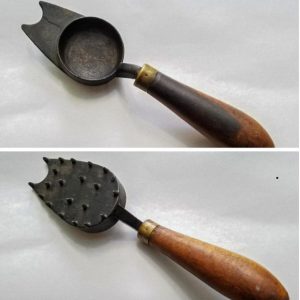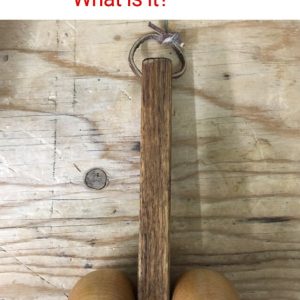Long before the era of smartphones, radios, and advanced communication systems, one small yet powerful tool played a critical role in law enforcement—the vintage police whistle. More than just an accessory, these whistles were a lifeline for officers, a symbol of authority, and a means of ensuring public safety.
The sharp, unmistakable trill of a police whistle could cut through the noisiest streets, calling for backup, dispersing crowds, or signaling danger. Today, these historic instruments have become cherished collectibles, carrying stories of a bygone era. Let’s explore their fascinating history, functionality, and enduring legacy.
The Origins of the Vintage Police Whistle

The idea of using whistles for communication dates back centuries, but their connection to police work began in the late 19th century. Before whistles, law enforcement officers used wooden rattles to alert others—a method that proved ineffective in busy urban environments.
The Birth of the Modern Police Whistle
In 1870s England, a company called J. Hudson & Co. revolutionized police communication by developing the first metal whistle designed for law enforcement. Made from brass or nickel-plated brass, these whistles produced a loud, piercing sound that could be heard over long distances.
Why It Was So Effective
Unlike rattles, which were bulky and difficult to carry, the new “pea whistle” design was small, lightweight, and could emit a high-pitched trill that carried over city noise. By 1883, the Metropolitan Police of London officially adopted whistles, replacing the old rattles entirely.
From there, the concept spread across the globe, with police forces in New York, Paris, and beyond integrating whistles into their standard gear.
How Police Whistles Were Used in Law Enforcement
In the bustling cities of the late 1800s and early 1900s, officers needed a quick, reliable way to communicate. The police whistle became an essential tool for:
1. Calling for Backup
Imagine a crowded street in 1920s New York. A police officer spots a pickpocket running through the marketplace. Instead of shouting for help, he blows his whistle—signaling to nearby officers that assistance is needed immediately.
2. Crowd Control and Public Order
During protests, riots, or public events, police whistles helped coordinate movement and direct crowds. A series of short, sharp blasts could indicate for civilians to clear the streets or for officers to form a blockade.
3. Emergency Alerts
Before telephones were widely available, an officer in distress could blow his whistle repeatedly, alerting both law enforcement and nearby civilians of an urgent situation. In places with no radio communication, this simple tool often made the difference between safety and disaster.
4. Traffic Direction
In the early days of automobiles, before traffic lights became widespread, officers used whistles to control intersections. A single blast might indicate “stop,” while two short blows could mean “proceed with caution.”
Why the Vintage Police Whistle Became a Must-Have

The success of police whistles came down to four key advantages:
- Simplicity – No batteries, no wires, no complicated mechanics—just a simple blow to produce sound.
- Reliability – Unlike early telephone systems, whistles never failed due to technical malfunctions.
- Audibility – A well-designed whistle could be heard over half a mile away, making it perfect for noisy city environments.
- Authority – The sound of a police whistle commanded attention and respect, instantly signaling law enforcement presence.
Because of these benefits, whistles weren’t just used by police. They became essential tools for railway workers, military officers, referees, and maritime navigators.
Fascinating Stories About Vintage Police Whistles
These small instruments played a role in some of history’s most dramatic moments.
1. The Whistles That Saved Lives in World War II
During the Blitz in London (1940-41), police and air raid wardens used whistles to guide civilians to bomb shelters. In total darkness, as sirens wailed and bombs fell, the familiar sound of a police whistle became a beacon of safety.
2. The Titanic Connection

A whistle made by J. Hudson & Co. was used by an officer on the RMS Titanic as the ship sank in 1912. Survivors in lifeboats later recalled hearing a lone whistle cutting through the icy silence, signaling rescuers. The whistle was recovered and is now one of the most haunting artifacts from the disaster.
3. A Collector’s Dream
Today, vintage police whistles are highly sought after by collectors. Rare models, particularly those engraved with markings like “Birmingham Police” or “New York Police Department”, can fetch hundreds of dollars at antique auctions.
The Decline of the Police Whistle
With the rise of two-way radios in the mid-20th century, the need for police whistles diminished. Radios allowed officers to communicate directly with headquarters and fellow officers without relying on audible signals.
By the 1960s and 70s, most major police forces had phased out whistles in favor of handheld radios and dispatch systems. Today, whistles are rarely used in active law enforcement, though they still appear in ceremonial roles, parades, and historical reenactments.
The Revival: Why Vintage Police Whistles Still Matter

Despite being replaced in modern policing, vintage police whistles haven’t disappeared completely.
1. Collectibles and Memorabilia
Police history enthusiasts treasure these whistles as authentic relics of law enforcement’s past. Well-preserved models, especially those with original chains and engravings, are valuable collector’s items.
2. A Symbol of Simplicity and Efficiency
The police whistle serves as a reminder of an era when law enforcement relied on ingenuity and simple tools. Even with today’s high-tech solutions, the whistle’s effectiveness remains undeniable.
3. Survival and Outdoor Use
Many survivalists, hikers, and rescue teams still carry whistles as emergency signaling devices. When technology fails, a loud, piercing whistle can still attract attention in life-or-death situations.
Final Thoughts: The Lasting Legacy of the Vintage Police Whistle
Though small in size, the vintage police whistle played a massive role in shaping law enforcement history. From calling for backup in city streets to saving lives in wartime, this humble tool was once an officer’s most reliable companion.
Even though it has largely disappeared from active duty, the police whistle remains an enduring symbol of authority, safety, and communication. Whether hanging in a collector’s display case or echoing in the hands of a history buff, these whistles continue to carry the stories of the past.
Next time you hear a sharp whistle blast, take a moment to appreciate the legacy of this remarkable piece of law enforcement history.


